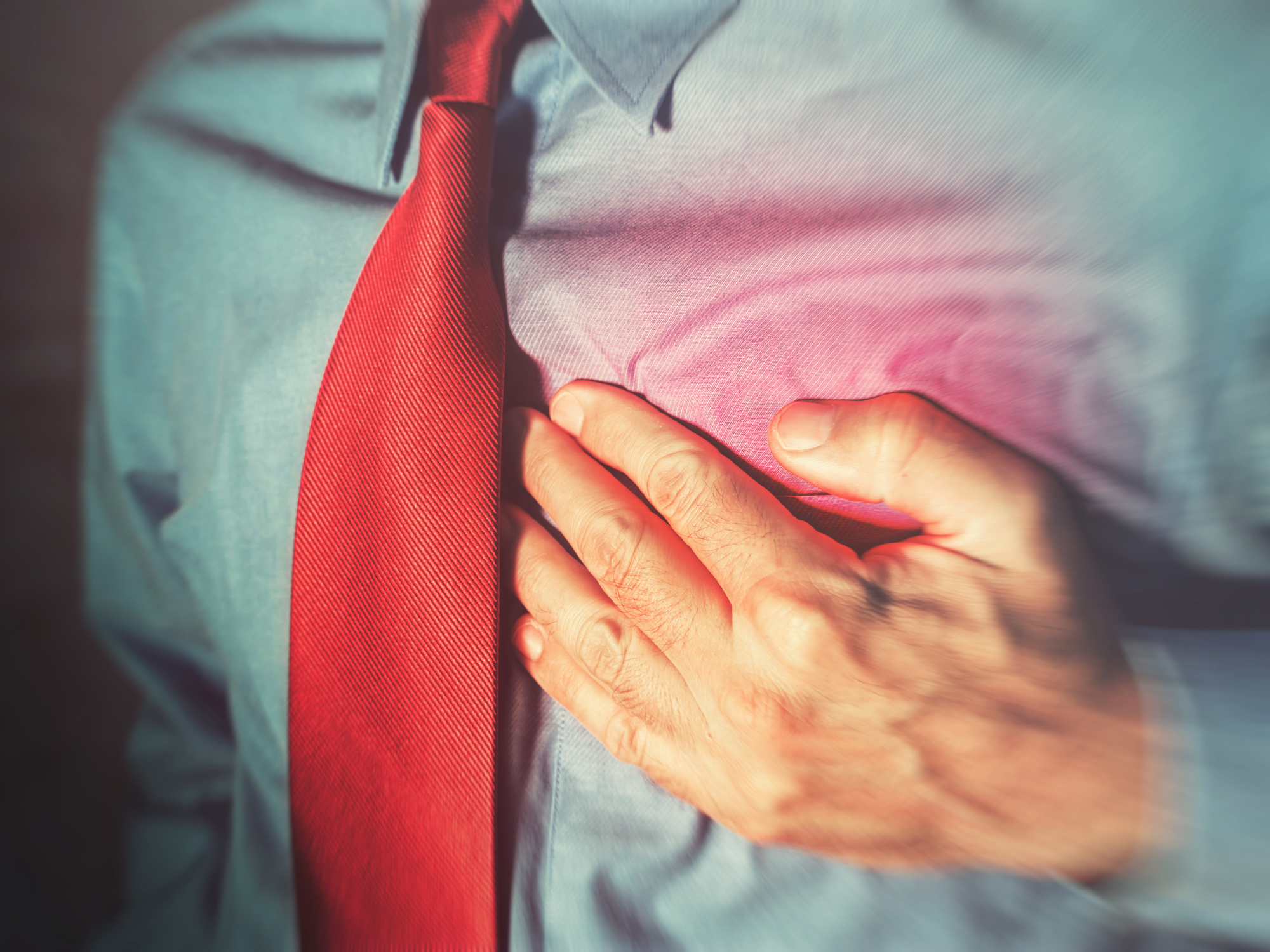Get Easy Health Digest™ in your inbox and don’t miss a thing when you subscribe today. Plus, get the free bonus report, Mother Nature’s Tips, Tricks and Remedies for Cholesterol, Blood Pressure & Blood Sugar as my way of saying welcome to the community!
10 signs of the most fatal heart condition

You’ve heard the stories. A young athlete collapses on the field out of nowhere, stops breathing and dies before paramedics get there. A happy, healthy father dies at the dinner table with no warning or history of heart trouble. A woman collapses at the office and dies in front of her shocked co-workers.
Sudden cardiac arrest can strike anyone at any time. It doesn’t matter how old you are, or how healthy.
When someone experiences sudden cardiac arrest, an electrical disturbance in their heart causes it to stop rapidly and unexpectedly, cutting off blood to the brain and other vital organs.
If someone who has cardiac arrest doesn’t get an electrical shock from an automated external defibrillator (AED) to restore their heart rhythm in time, they die. And about 90 percent of people who experience cardiac arrest don’t receive that life-saving medical treatment in time.
The worst part about this deadly condition is that there aren’t warning signs in most people. At least, that’s what the medical community thought up until recently.
But a new study shows there may be warning signs in more people than they originally thought. And if you know these signs, it could save your life or the life of someone you love.
Sudden cardiac arrest: What to watch out for
A recent study published in the American Heart Association journal Circulation found that the majority of people who go into cardiac arrest do have symptoms in the months and weeks leading up to the catastrophic event.
The study found that 54 percent of athletes who go into cardiac arrest have multiple symptoms before it happens. And about 71 percent of those athletes have at least one symptom in the four weeks before it happens.
A study conducted last year found that roughly 30 percent of athletes have symptoms before having cardiac arrest. And a 2016 study found that 50 percent of middle-aged people who experience cardiac arrest have symptoms in the four weeks before it happens too.
So clearly, the symptoms are present in a bunch of people… and if people who have these symptoms get to the doctor in time, it could save a lot of lives.
Some of the most common warning signs that people experience in the weeks before going into cardiac arrest are:
- Chest pain
- Shortness of breath
- Performance decline
- Palpitations
- Fainting
- Fatigue
- Weakness
- Blackouts
- Dizziness
- Vomiting
If you experience any of these symptoms without a reasonable explanation (like the flu or another illness), you should head to your doctor and get your heart checked out. Don’t shrug them off. It could cost you your life.
You should also stay extra alert for the warning signs of cardiac arrest if you fall in any of these groups with a higher risk:
- People with coronary artery disease
- People with diabetes
- People with hypertension
- People with high cholesterol
- Smokers
- People with a family history of cardiac arrest
Of course, the sad fact is, there’s still a lot of people who have no symptoms before their cardiac arrest strikes. Or they might have vague symptoms that don’t send them to the doctor, because they seem too minor. And that’s where knowledge and quick action come into play…
What to do if someone goes into sudden cardiac arrest
Being with someone who goes into sudden cardiac arrest, is a terrifying thing. But if you can pull yourself together, you can help them survive. Here’s what you need to do:
- Call 911
- Use an AED, an automated external defibrillator, if one’s available
- If you don’t have an AED, do CPR until the ambulance gets there
If you’re nervous about the idea of using an AED on someone, check out this video. It will boost your confidence.
[youtube https://www.youtube.com/watch?v=7ukk5hOV8e0]
Or if your CPR skills are a little rusty, here’s a video refresher.
[youtube https://www.youtube.com/watch?v=cosVBV96E2g]
Who knows… if you commit this simple information to memory now, it may save someone’s life someday.
Editor’s note: Are you feeling unusually tired? You may think this is normal aging, but the problem could be your master hormone. When it’s not working, your risk of age-related diseases skyrockets. To reset what many call “the trigger for all disease” and live better, longer, click here to discover The Insulin Factor: How to Repair Your Body’s Master Controller and Conquer Chronic Disease!
Sources:
- Heart-stopping condition could come with warning signs — MedicalXpress
- Sudden cardiac arrest — Mayo Clinic
- Sudden Cardiac Arrest: 5 Things Raise Your Risk — Cleveland Clinic













